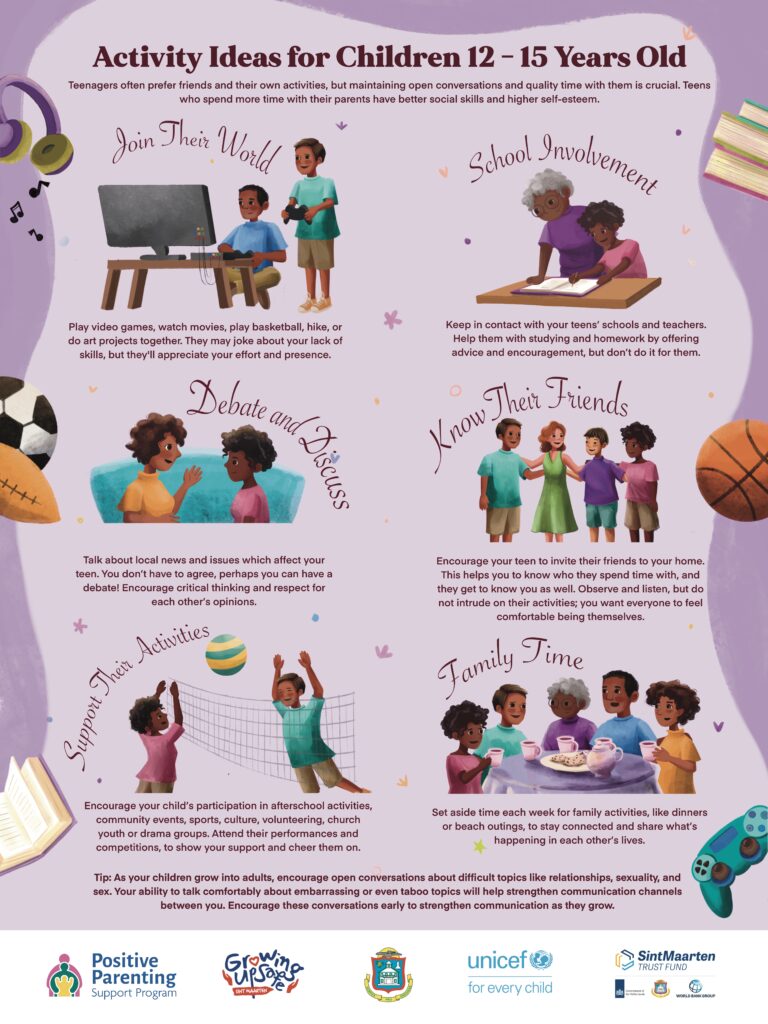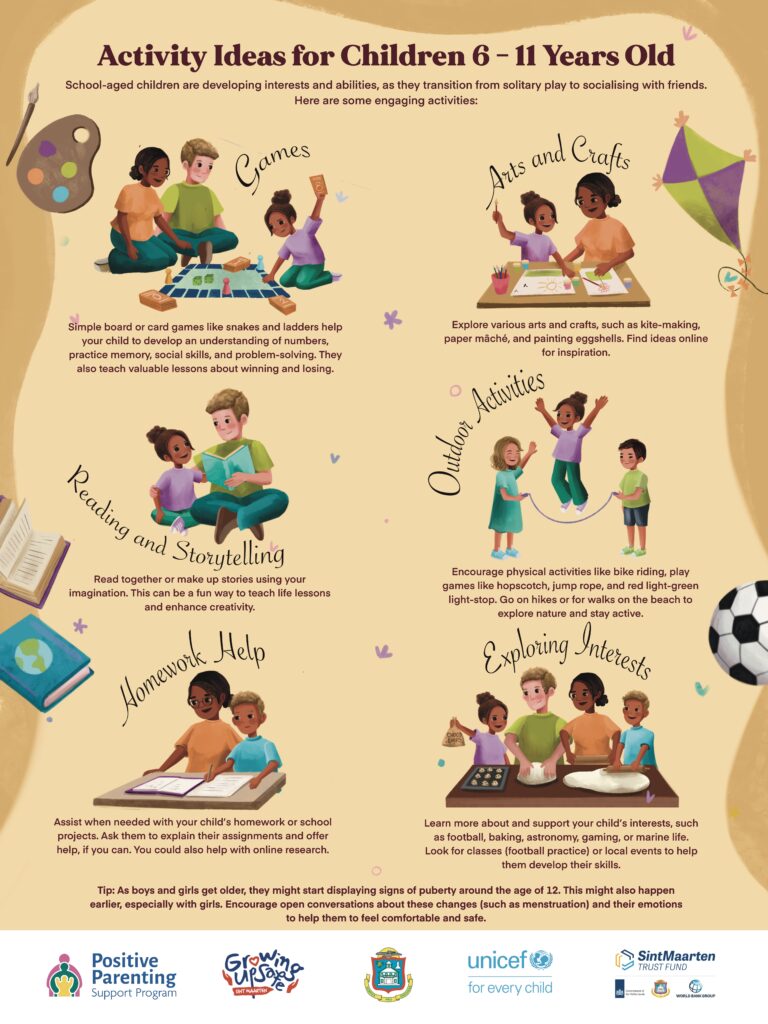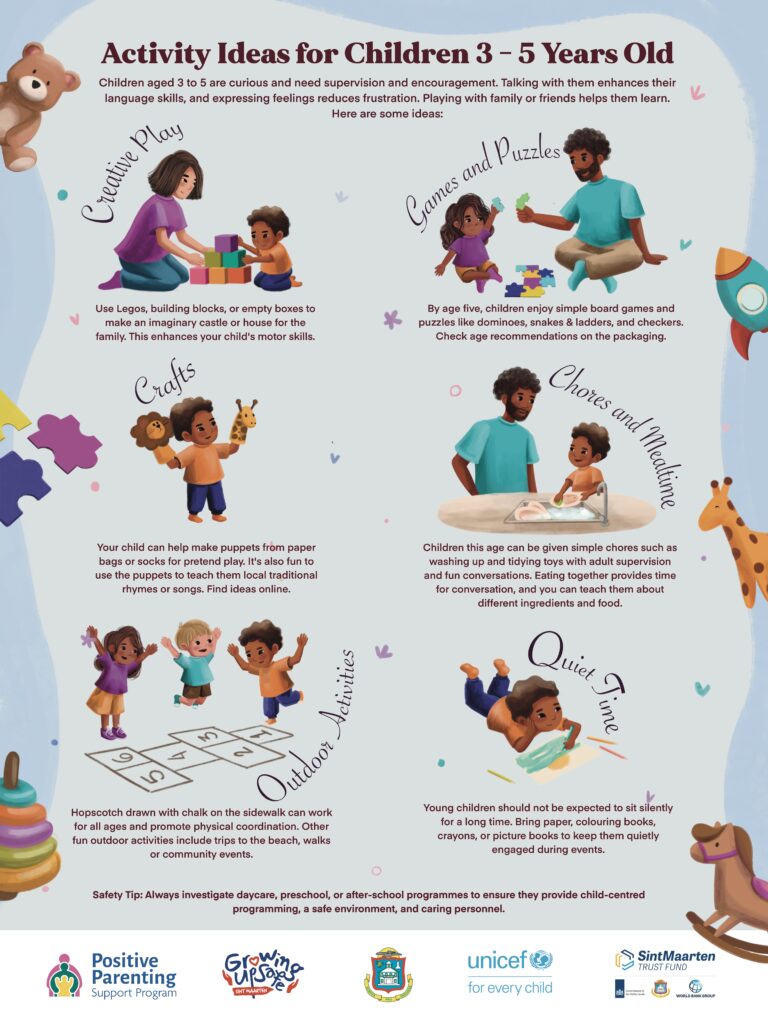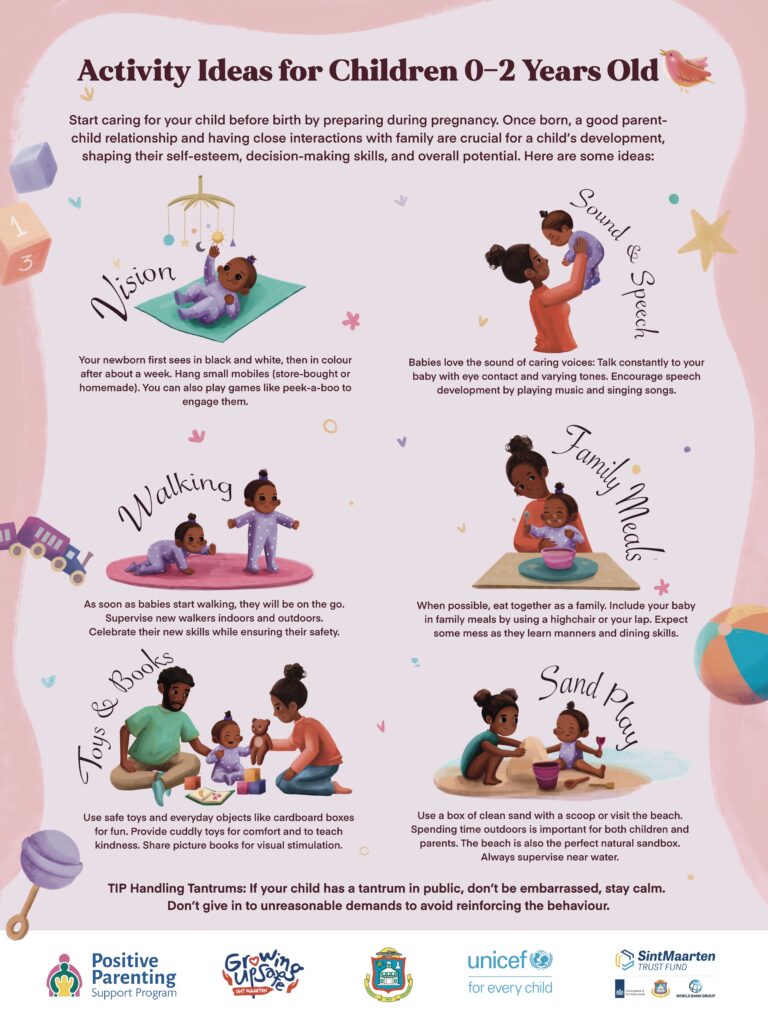It’s about Quality, not Quantity!
As modern families juggle work, school, and other responsibilities, the challenge of finding time to connect with their children has become more pronounced. While some parents feel pressured to spend long hours with their children, evidence suggests it’s not the quantity of time, but rather the quality, that truly counts!
What is Quality Time?
Quality time refers to moments when parents are fully engaged and present with their children, providing undivided attention that fosters meaningful connection. This could be as simple as sharing a meal, reading a bedtime story, or engaging in a focused conversation about their day. The key is that during these moments, parents are not distracted by other tasks or technology; rather, they are fully tuned in to their child’s needs, thoughts, and emotions.
A 2020 report from the Caribbean Development Bank (CDB) emphasised the importance of strong family relationships in the healthy development of children across the region. Though the report focused on Caribbean families, the principles are universally applicable. The findings revealed that children who feel connected to their parents through quality interactions are more likely to thrive emotionally and socially, no matter the amount of time spent.
Emotional and Cognitive Benefits
Psychologists and child development experts, including those from UNICEF’s research in the Caribbean, have long noted the emotional benefits of quality time. When children have regular opportunities to bond with their parents in meaningful ways, they are more likely to develop a secure attachment. This security leads to increased self-confidence, emotional regulation, and the ability to cope with stress.
These benefits extend beyond emotional development. According to a study published by the Caribbean Journal of Psychology, children who experience regular, quality interactions with their parents demonstrate better cognitive abilities. They perform better academically, show improved language skills, and are more likely to succeed in problem-solving tasks. These findings highlight that quality time stimulates children’s minds, enhancing their overall development.

Building Communication and Trust
One of the most significant outcomes of quality time is the establishment of trust and open communication. During moments of focused attention, children learn to express themselves and share their thoughts, knowing they have their parents’ full attention. This creates a strong foundation of trust and mutual respect, invaluable as children grow older and face increasingly complex emotional and social challenges.
Research from the University of the West Indies points out that families who regularly engage in quality interactions tend to have children who are better communicators. Such children are not only able to express themselves clearly; they also learn to listen and respond empathetically—skills crucial for healthy interpersonal relationships.
Less Can Be More
Parents often feel guilty about not spending enough time with their children, especially when work or other obligations keep them busy. However, focusing on the amount of time spent together may lead to missed opportunities for deeper connection. Short but intentional moments of interaction can be more valuable than hours together when the parent is distracted or preoccupied.
For instance, a study conducted by the Caribbean Child Development Centre found that children whose parents were highly engaged during short periods of play or conversation experienced similar emotional and psychological benefits to those whose parents spent longer periods with them, but with less engagement. This research reinforces the idea that quality, not quantity, has the most profound impact.
Creating Quality Moments
Creating quality moments does not require elaborate planning or long hours. Small, daily habits can be powerful, such as sharing a meal without distractions, asking specific questions about a child’s day, or engaging in a quick game together. In fact, these moments of connection often occur naturally when parents create an environment of openness and attentiveness.
Parents can also use routines to build quality time. According to a UNICEF Eastern Caribbean report, bedtime stories, evening walks, or family dinners are great opportunities for connection. These routines not only provide structure but also reinforce the parent-child bond by creating regular, predictable times for meaningful interaction.
Need Ideas?
Check out the following posters. These were developed through the Positive Parenting Support Programme, tailored specifically for St. Maarten. You can download them on our downloads page!











